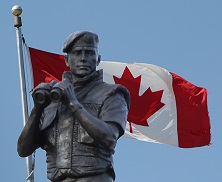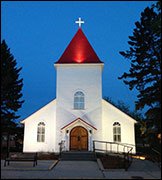True and Fascinating Canadian History
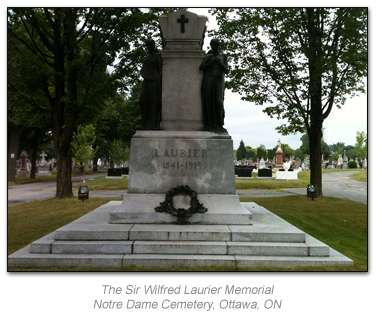
A Mystery of
Prime Ministerial Proporations
by J. J. Healy
The nature of the relationship between the police and politicians is one always of an uneasy dance. Certainly, they need each other. The police exist as a result of legislation created by politicians which puts the police in place and gives them certain powers and authority. Politicians count on the police for community order and protection.
In turn, the community trusts the police to maintain order by everyone including politicians. At the same time, the police remain aware that police administration, funding and senior appointments, especially the RCMP Commissioner's job, are subject to political approval. An uneasy, unnerving dance to be sure. At times, an unholy dance too.
In the world of law enforcement, policy exists that discourages police officers from communicating with elected officials and encouraging a healthy distance between police and politics. Politicians often cry out, for instance, that the police 'ought to be kept at arm's length'. Police operations, for sure, are not the stage for political influence. The reason for this separation lies in the fear of familiarity and preferential treatment arising ... which could work both ways.
Policy notwithstanding, beginning in 1873 all Commissioners of the RCMP have been chosen by the political leader of the country, the Prime Minister. The PM, for reasons which have remained buried deep in secrecy, favours one candidate over another in selecting the 'top brass' or Commissioner of Canada's national police force, the RCMP.
Web2016.jpg)
William Beahen and Stan Horrall, authors of Red Coats on the Prairies note that, in order to ascend to the rank of senior Commanding Officer of the Force, '...additional political influence was also necessary' (p.159) to bolster a police candidate’s consideration of this most senior post. However, once chosen the newly appointed Commissioner must also remain at arm’s length from the Prime Minister and the entire political arena. It is interesting to speculate about the reasons behind a PM’s choice of Commissioner, but that in itself is another mystery presently being suspended from readers.
It happened that the fifth Commissioner of the RCMP was one Lawrence William Herchmer.
He was appointed to his position by the PM of the day, Sir John A. MacDonald in 1886. Beahen and Stan Horrall describe Herchmer as '...a politically well-connected official of the Indian department. Herchmer had distinct advantages in that he was an experienced westerner and knew the Aboriginal people. But he had limited experience in the military and knew nothing of police work. His tenure as Commissioner would be an interesting and dynamic period for the NWMP.'
Despite PM MacDonald's deliberate choice for Commissioner, and after MacDonald's death, the literature also reveals a strained relationship continued for years between Prime Minister Laurier and Commissioner Herchmer. The nature of this strained relationship may now be shown to have been so serious as to transcend the dimension of time and defy the natural barrier between life and death. Laurier and Herchmer were both men of strong will.
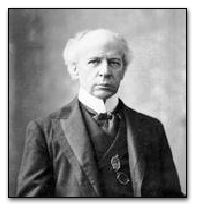
Sir Wilfrid Laurier is one of the great political characters in Canadian history. He served as Prime Minister for 15 consecutive years from 1896 – 1911, the longest continuous service on record. During these years, his relationship with the Northwest Mounted Police, as it was known at that time, was often marred by conflict and squabbling. As a matter of fact, the official RCMP website notes that ...'by 1885, the Force had grown to 1000 men, but in 1896 its future was threatened by the newly elected Prime Minister, Sir Wilfrid Laurier, who decided to reduce and eventually disband the NWMP'.
The CBC website attests to this fact and explains that Laurier '...argued that it [the NWMP] had served its purpose: Canada’s claim to the West was well entrenched.' Certainly, Commissioner Herchmer would not have been pleased to learn that it was the desire of PM Laurier to unravel the very Force which Herchmer had been appointed to lead. The Force nearly vanished off the prairies in faster time that it takes for a piece of brass to melt. Conflict grew.
Happily, public support of the Mounties prevailed. As the CBC notes Laurier did not get his way. 'Support for the Force in the West was strong, and getting stronger as it built on its reputation by policing the Klondike Gold Rush.' Laurier had to back down, but his intentions had been made known. He did not make friends in police circles and Herchmer’s victory no doubt did not sit well with him. Laurier would prove to have a long memory.
In 1899, the Boer War erupted in South Africa. Commissioner Herchmer was given permission to lead members of the NWMP overseas to join in this conflict. Part of his duties were also to observe and learn from the operations of other police forces, notable the British Constabulary.
Imagine Herchmer’s surprise upon his return home to Canada to discover that he had been unceremoniously relieved of his position as Commissioner by PM Laurier and replaced by another of the PM’s choices, Commissioner A.B. Perry.
Commissioner Herchmer surely must have been both angry and confused. Not all that many years long afterwards, Herchmer died, no doubt, still upset by his sudden and shameful demotion at the hands of PM Laurier.
It is widely known today that Sir Wilfrid Laurier is buried in Notre Dame Cemetery in Ottawa, ON. A hugh stone memorial dedicated to him was erected just inside the main gate off Montreal Rd. Visitors cannot miss it. Not long ago, I was one of those visitors to Notre Dame Cemetery and I stopped to pay my respects to Sir Wilfrid. Near his memorial, near the Canadian flag pole, I then happened to notice a black rectangular empty space where once a brass memorial plaque had been in place. It was quite obvious that the brass plaque had disappeared. I thought: 'Could it have been removed for repair or cleaning?'
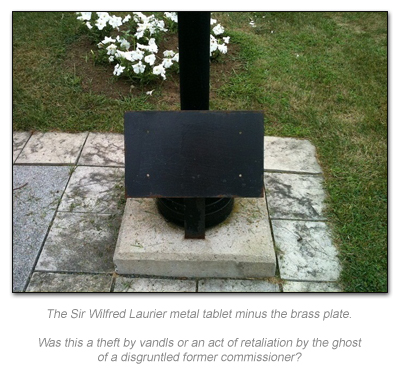
I reported the loss to cemetery authorities who were aghast at the brass plate vanishing act. No, there was no removal of the plaque for good purposes by well intended personnel. It was concluded that the brass plate in dedication to Prime Minister Laurier had been 'lifted' by unknown persons for no good intention.
Further discussions with cemetery staff revealed that brass has become a valuable resource which unfortunately is often stolen from cemeteries. Vandals seek to resell the brass for profit. So, at the present time, Sir Wilfrid Laurier’s beautiful memorial is minus its brass plate. Now that the theft has been discovered, efforts are presently underway to replace the plaque with a bronze plate which is less likely to attract the attention of thieves.
I quickly came to the conclusion that the investigation of Laurier's brass had me at an unusual disadvantage. In previous cases of theft, I would canvas the neighbourhood for witnesses and quite often I was successful by receiving some leads.
But, in this case, in spite of the fact that Laurier could have been an excellent witness, he wasn't talking to me. As a former police investigator looking into this act of vandalism, I would have to consider two possible motives for the theft: one, the plate was stolen by vandals for resale; and secondly, it may be evidence of ongoing conflict between a politician and a Commissioner that continues in the netherworld.
There can be no doubt that the battle between PM Laurier and Commissioner Herchmer continues today. I wondered, if perhaps, the theft is an act of retaliation by the ghost of Commissioner Herchmer?
My theory is that Commissioner Herchmer seeks to impress upon PM Laurier the ongoing and absolutely necessary need for a solid RCMP presence in all corners of Canada.
Including his own cemetery!
September 18, 2011
From the Fort,
I have the honour to be, Sir
Your Obedient Servant,
J. J. Healy
Beahen, W. & Horrall, S. (1998). Red Coats On The Prairies. PrintWest Publishing Services. Regina, SK
Source: http://www.rcmp-grc.gc.ca/hist/index-eng.htm
Source: http://www.cbc.ca/news/background/rcmp/

